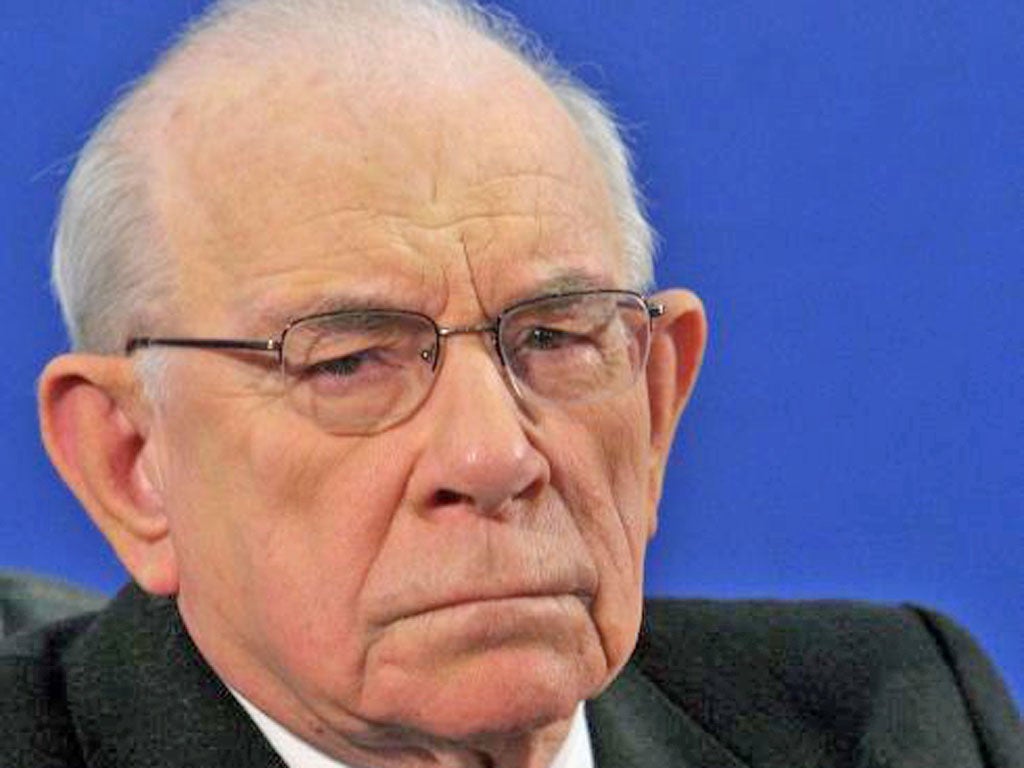Israel's future 'at risk' if Iran strike sanctioned
Warning from former judge questions claims about Israeli casualties by Defence Minister

The former Supreme Court judge appointed by Israel's government to investigate the defects of its 2006 war against Lebanon has issued an outspoken warning that a unilateral strike on Iran's nuclear facilities could "endanger the future of the country".
Judge Eliyahu Winograd's warning came as the US was reported to be planning a series of military preparations designed both to convince Israel to hold back from such a strike and Iran to take more seriously the stalemated negotiations designed to halt its perceived progress towards a nuclear weapons capability.
Judge Winograd used an Army Radio interview to deride the claim by the Defence Minister Ehud Barak that no more than 500 Israelis would be killed in retaliation for a strike and questioned whether his own severe criticism of the military's and the previous government's handling of the Lebanon war had been taken to heart.
According to The New York Times, the Obama administration is planning with 25 allies the largest minesweeping exercise yet in the Persian Gulf, partly as a defensive move to prevent any attempt by Iran to block oil exports from producers like Saudi Arabia, Iraq and Kuwait through the Strait of Hormuz. Quoting unnamed military officials, the paper said Washington was seeking to complete a new radar system in Qatar designed to persuade Iran that even if it developed nuclear warheads for its missiles, they could be countered by anti-missile weaponry.
The administration was also said to be considering expanded covert action against Iranian nuclear installations as well as whether Barack Obama should issue a new declaration that he is willing to take future military action. There have been indications that Israel's Prime Minister Benjamin Netanyahu might stay his hand if the US President set a firm deadline for US military action.
But some officials were said to see Israel as trying to use the US election campaign to corner him into making an unnecessary commitment to military action. Mitt Romney, the Republican presidential candidate, has taken a harder public line on Iran than the President, including moving much closer to indicating he would not oppose a unilateral Israeli strike.
On Sunday, Mr Netanyahu implicitly criticised Mr Obama when he told his Cabinet: "The international community is not setting Iran a clear red line, and Iran does not see international determination to stop its nuclear project. Until Iran sees a clear red line and such determination, it will not stop the progress of its nuclear project – and Iran must not be allowed to have nuclear weapons."
Also on Sunday, Judge Winograd predicted a "barrage" of Iranian attacks in response to an Israeli strike, adding: "All of the past and present heads of the security establishment, the Shin Bet security service and the Mossad are saying 'don't strike'. And only Barak and Netanyahu will decide to do so? For what? ...Maybe there is another solution?"
But Benny Gantz, the Israeli military's chief of staff, despite being thought to be against a strike, made it clear that the military would willingly participate if the decision was taken. "The IDF is mobilised and prepared for any event. We will reach anywhere at any time to protect this nation," he said.
Join our commenting forum
Join thought-provoking conversations, follow other Independent readers and see their replies
Comments
Bookmark popover
Removed from bookmarks